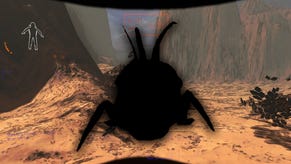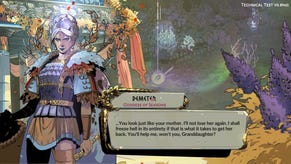The Sunday Papers
Read more
Sundays are for playing too much Apex Legends. Have some people written about it in the best articles about video games from the past week? Or before that, because I read some good stuff while I was on holiday? Maybe. Maybe.
For Waypoint, Yussef Cole laid out the numerous problems with Fortnite's appropriation of dances from black artists. It's a context I wasn't entirely aware of, and should give anyone who says 'oh come on, they're just dances' pause for thought.
Much of the discussion surrounding Epic’s appropriations is concerned with whether the lawsuits being brought by 2 Milly, Ribeiro, and others, are legally feasible; it centers the letter of the law, asking whether Epic is allowed to lift these dance moves. But this ignores the (at least) equally pertinent question of whether it should. This question cannot be adequately answered without squaring Epic’s behavior within a long history of mainstream white America stealing music and dance from black artists, decontextualizing their work, and repackaging it to make it more palatable (and thus, profitable) to white audiences.
Also on Waypoint, Patrick Klepek laid into Blizzard's callous and unnecessary decision to fire 800 employees after a record sales year. I couldn't agree more.
Activision Blizzard, like most of corporate America, does not have the courage to call this what it is: the ruination of lives in service of endless growth and profit maximization to serve the ultra rich becoming the mega rich at the expense of an exploitable underclass with no power to stop every effort to undermine them. No, no — it’s a “restructuring.” There is no end to the call for growth. There is always more. To them, the publishing of video games are a means to an end, a people-driven creative medium to be exploited until the well runs dry.
It's sad that some games have to end, but I'll never tire of reading about their deaths. For Paste, Dia Lacina watched from the frontlines as the Demon's Souls servers perished, taking the opportunity to pen some thoughts on the importance of connectivity.
On the last day of Demon’s Souls’s servers, I mostly observed. A patchwork of other players’ messages shimmered into glowing orange existence wherever I traveled. They didn’t know who, if anyone, would see them, but they reached out through the fog of our individual Boletarias eager for connection. Soon we’d be cut off from one another forever. I read them, as many as I could. There were pleas for help, encouragement for when our connections would be severed, quirky sayings, blue humor. I rated them quickly. Letting them know that at least someone was there.
On Kotaku, Cecilia D'Anastasio asked psychologists what it means when we dream about games. I'm deeply sceptical about Jungian dream analysis, but this is interesting nonetheless. (I used to get plagued by dreams about letting down my Dota teammates, half-knowing I wasn't actually playing but still feeling guilty about zoning out and lying down. Thanks, brain.)
Formal studies on how gaming affects dreams, and on how gaming-related dreams impact our daily lives, are few and far between. Although there’s no data-driven evidence that says what my anecdotal research has found—that strategy games are very popular dream fodder—there are studies corroborating the idea that gamers dream differently from non-gamers. According to research by Jayne Gackenbach, a psychologist at MacEwan University in Edmonton, Alberta who specializes in lucid dreaming, gamers are more likely to report having lucid dreams, or dreams in which the dreamer has a high level of control over what happens.
Also on Kotaku, Gita Jackson (cautiously) celebrated the diversity of Apex Legends' character roster. (Here's a Good Tweet, while we're at it.)
Like Overwatch, the stated backstories of these characters don’t matter much when you’re actually in the fray. Bloodhound, who has been confirmed by the developers to be non-binary, doesn’t say “I don’t fit into the binary definition of gender” when they kill someone. Nor does Gibraltar, whom the developers have said is gay, talk about how he is gay while you play as him. Still, there’s something nice about a game where I can run into other players who have chosen a character who isn’t a white, straight, cis male.
Go on, have another longun' from Aeon. Anthropologist Chris Knight explored the origins of laughter, painting it as integral to human development rather than a mere "psychological relief valve". I don't really know if that grand conclusion holds up, but like all good Aeon essays it made me go 'ooh' and 'hmm' quite a bit.
The primatologist Frans de Waal describes how an angry coalition of female chimpanzees can sometimes direct a chorus of ‘woaow’ barks at a misbehaving male, maintaining the noise until he finally gets the message. If human laughter evolved through progressive modification of ancestral primate signals, then – as proposed by the late ethologist Irenäus Eibl-Eibesfeldt – similar ‘mobbing’ cries constitute a likely candidate.
At first, I dismissed the Guardian headline "New AI fake text generator may be too dangerous to release, say creators" as PR waffle. I still sort of thought that after reading the rest of Alex Hern's article, but then I saw him tweet this. It knows how to do a news pyramid. We're fucked.
Feed it the first few paragraphs of a Guardian story about Brexit, and its output is plausible newspaper prose, replete with “quotes” from Jeremy Corbyn, mentions of the Irish border, and answers from the prime minister’s spokesman.
One such, completely artificial, paragraph reads: “Asked to clarify the reports, a spokesman for May said: ‘The PM has made it absolutely clear her intention is to leave the EU as quickly as is possible and that will be under her negotiating mandate as confirmed in the Queen’s speech last week.’”
Here's Mark Brown's final video in his series about accessibility and games, this time looking at design choices that make things easier for people with a variety of cognitive disabilities. It's sterling work: simple, practical advice for how to create games that as many people can enjoy as possible. Give it a watch if you're making something, yeah?
Ollie Thorn's vid on Steve Bannon is fab. As I linked to Klepek saying earlier: eat the rich.
This is very good.
Music this week is Captain Coull's Parrot by the Peatbog Faeries.









